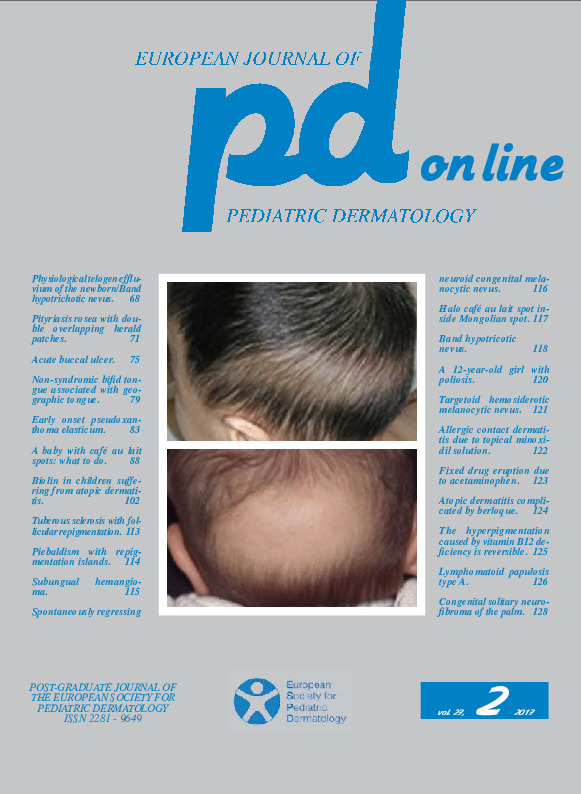Congenital solitary neurofibroma of the palm.
Downloads
DOI:
https://doi.org/10.26326/2281-9649.27.2.1359How to Cite
Garofalo L. 2017. Congenital solitary neurofibroma of the palm. Eur. J. Pediat. Dermatol. 27 (2): 128. 10.26326/2281-9649.27.2.1359.
pp. 128
Abstract
Unlike multiples, the solitary neurofibroma of the skin is not an expression of neurofibromatosis (1, 2). It is a hamartomatous benign neoformation made up of Schwann cells and fibroblasts that originates from the connective tissue of the sheath of peripheral nervi.It does not have sex and site preference, being able to be located anywhere in the body. The preferred age is the third decade, but it can also be observed at birth. Its consistency is variable, from tense to soft in the case of stromal mixoid degeneration. The neoformation can be associated with paresthesias and be painful to palpation. Unlike the neurofibromas of peripheral neurofibromatosis that may undergo malignant degeneration, solitary neurofibroma of the skin never degenerates. When possible, radical surgical removal is the elective therapy.
Keywords
Solitary neurofibroma, Skin, Congenital

